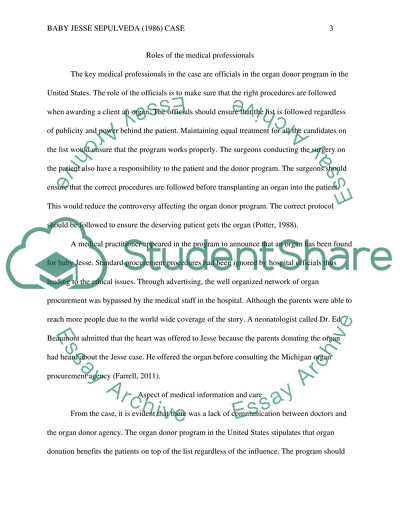Cite this document
(“Baby Jesse Sepulveda (1986) case Essay Example | Topics and Well Written Essays - 1250 words”, n.d.)
Retrieved de https://studentshare.org/health-sciences-medicine/1437588-baby-jesse-sepulveda
Retrieved de https://studentshare.org/health-sciences-medicine/1437588-baby-jesse-sepulveda
(Baby Jesse Sepulveda (1986) Case Essay Example | Topics and Well Written Essays - 1250 Words)
https://studentshare.org/health-sciences-medicine/1437588-baby-jesse-sepulveda.
https://studentshare.org/health-sciences-medicine/1437588-baby-jesse-sepulveda.
“Baby Jesse Sepulveda (1986) Case Essay Example | Topics and Well Written Essays - 1250 Words”, n.d. https://studentshare.org/health-sciences-medicine/1437588-baby-jesse-sepulveda.


